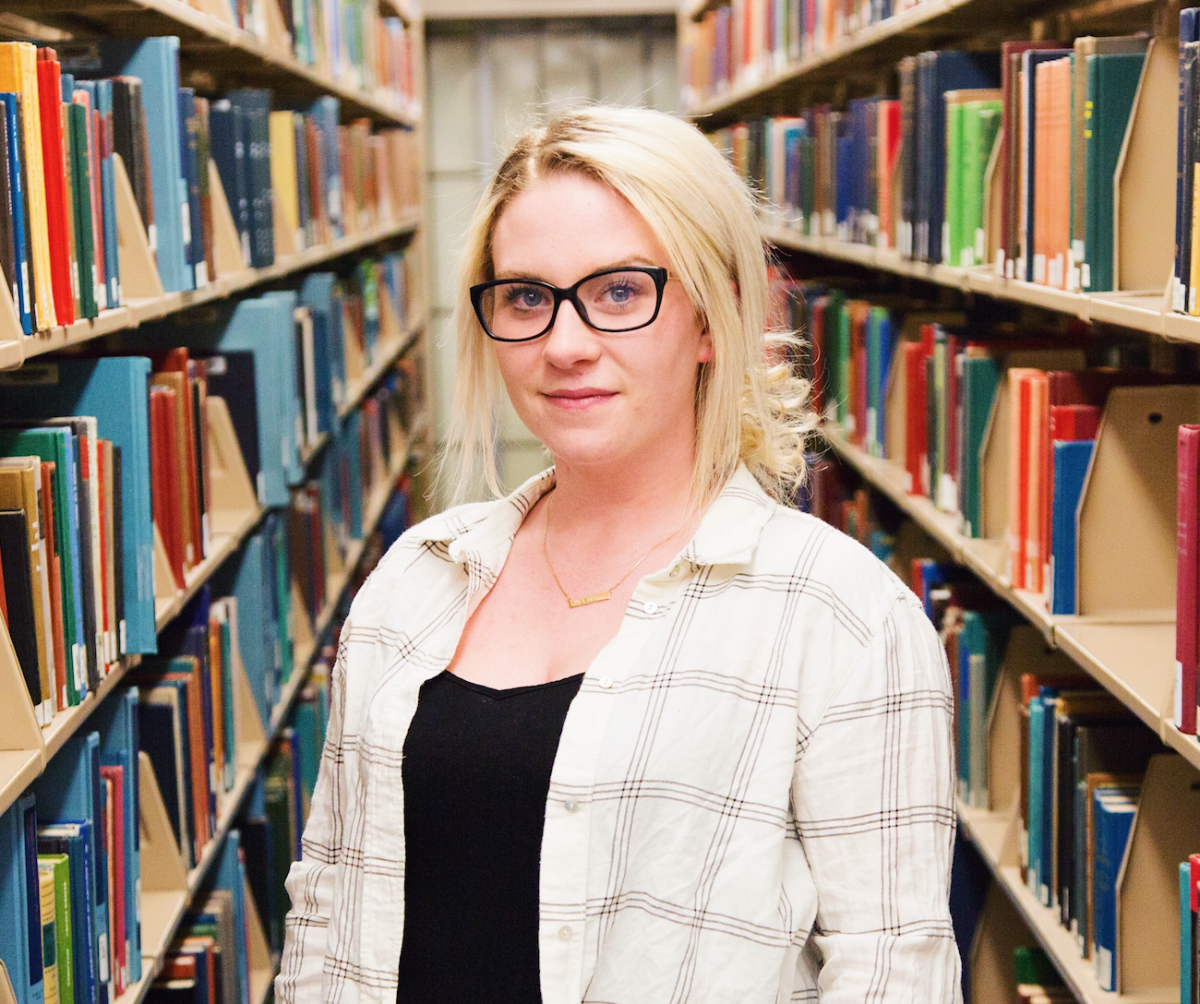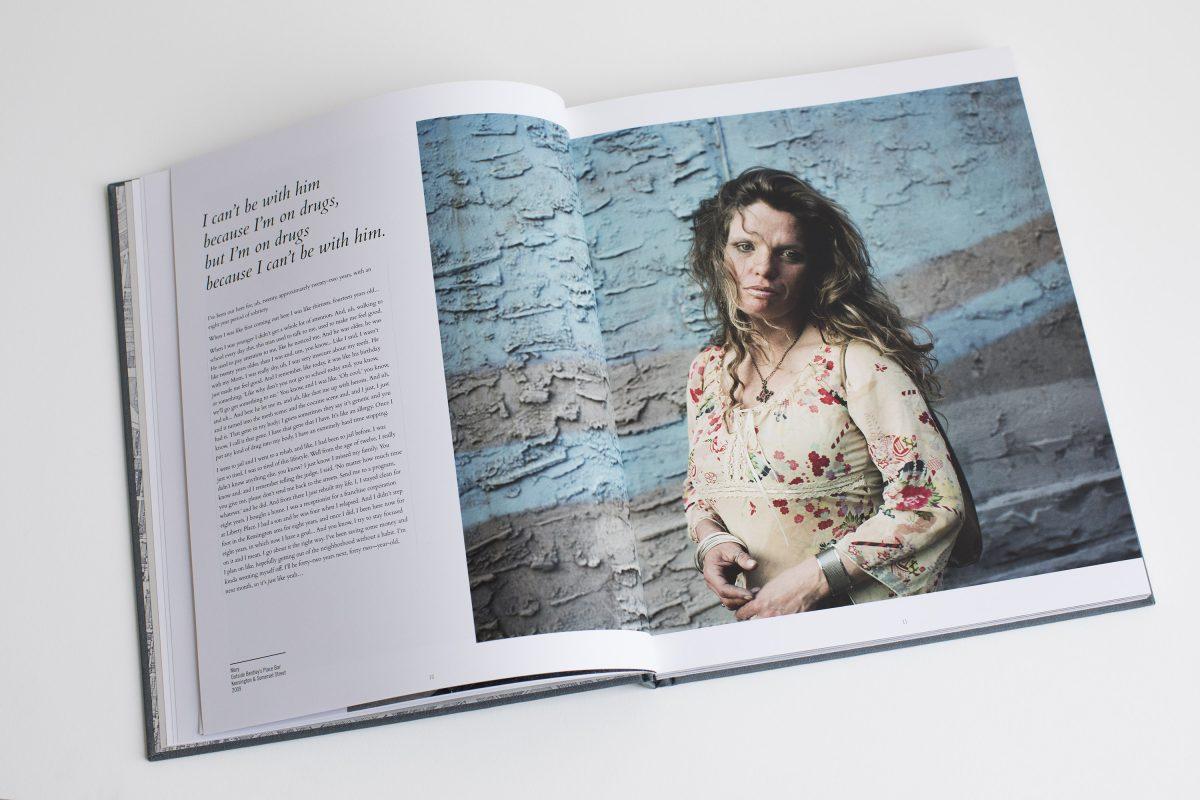Sarah Fuller returns to campus with support from roommate
In the beginning of the spring 2016 semester, Sarah Fuller ’19 and her roommate Allison Jones ’19* sat on their beds draped with bright blue spreads in Villiger Hall. The walls were covered in photos of their friends and family. The first-year students had recently moved back in for their second semester.
As they did their homework in their room, Fuller confided in her roommate with whom she had become close friends. What she said came as a shock to Jones. Fuller explained she was going through withdrawal. Quickly, it became clear that what Jones had thought was just an alcohol problem was much worse. Fuller was struggling with heroin use.
“I didn’t know exactly what was going on in her life until that moment that she told me everything,” Jones said.
Later, as Fuller lay in her bed in pain, she explained to her roommate what it meant to go through withdrawal. Jones did what she could to alleviate Fuller’s symptoms that day, buying ice packs to try to ease her aches. Jones knew it was up to Fuller to make a call for help. Fuller did. She was carried away from campus in an ambulance.
A year later, now in recovery, she welcomes students in the Office of Student Outreach and Support as part of the Wellness, Alcohol & Drug Education (WADE) program. Just a few months ago, she was battling to get her life back.
“School was everything to me, and I lost it,” Fuller recalled as she sat in the office tucked away in the corridors of Campion Student Center.
As she sat on the couch in the office, Fuller recalled making her decision to attend St. Joe’s. It was exactly what she wanted in a school – the beautiful campus, the small size, the sense of community.
In the fall of 2015, she moved in excited to start college. However, during her first year, she found herself struggling with alcohol use.
“I felt like everything was falling apart,” Fuller said. “I was late to class, and my papers weren’t on time. It wasn’t like me.”
During that first year, when Fuller was struggling with alcohol use, Jones began to go to meetings with Fuller and educate herself about her roommate’s experiences.
“I learned a lot that way, and once I understood it better, I was actually able to support her in her recovery,” Jones said. “I just felt as a human and living with her that I should help her out and be the best friend and support system that I could.”
Fuller soon found herself facing a greater struggle than alcohol. She began to use heroin and quickly fell into what she described as “a dark void with no time.” Looking back, it was hard for Fuller to recognize herself during those days.
“I went downhill extremely fast,” Fuller recalled. “I lost everything in my life. I lost school. And it was scary.”
Fuller said she longed for the life she once had. She longed to be back in college. And that longing became her greatest motivation.
“It gets to a point where you have nothing left but the drug or the substance,” Fuller said. “It was kind of like your addiction staring you in the face, and it’s hard to deny that this happened because you started to get high or to drink.”
Only when Fuller hit her “point of desperation” was she able to take the steps to get help. And according to Fuller, that’s the case for many. But, if it were not for the constant messages from her family and Jones urging her to seek help, Fuller said she might not be back on campus.
“My roommate was my biggest support here on campus,” Fuller said. “She couldn’t make me get clean, but she could be there for me and that’s the best thing that she did.”
Unsure if Fuller would be returning to campus, Jones remained in constant contact with Fuller and her mom during Fuller’s recovery.
“The last time I spoke to her before she went away to recovery, she told me the doctor said ‘if you keep this up, you’re going to die,’” Jones said.
Fuller didn’t want to keep it up. She wanted to be back in school.
“I wasn’t willing to chance losing school again, so I went to meetings, and I talked to people, and I had support around me, and that’s really how I stayed clean is with the support,” Fuller said.
Fuller comes across as caring, positive and smart. That’s how the people who know her describe her. St. Joe’s gave Fuller, who held an academic scholarship, the chance to start over despite a failing GPA while going through treatment.
Fuller’s return to St. Joe’s in the fall of 2016 wasn’t without continued struggle. After a semester away from campus, Fuller felt isolated when she got back on campus, eating in the dining hall alone and not getting involved in any clubs.
“When I came back I felt like everyone was looking at me, everyone knew who I was, everyone knew what I did, nobody wanted to talk to me,” Fuller recalled. “I already labeled myself because of how I thought other people viewed me, and that affected me a lot. When someone looked at me, I felt the stigma.”
Jones continued to educate herself about substance use disorder so she could be more informed about her roommate’s experiences.
“I thought the best thing to do is to be her friend,” Jones said. “I think the fact that I never judged her and always was open to hearing about her struggles and educating myself, that’s why she felt so comfortable coming to me. I never thought of her less. I never thought of her different. I was just her friend.”
To Fuller, this unconditional acceptance is the most important step anyone can take to help those struggling. Fuller felt this support from her roommate and from Katie Bean, assistant director of Student Outreach and Support and WADE.
“When you’re struggling with something and you’re hiding it from the people you care about, it’s a lot to carry around, and you don’t want to be going through it,” Fuller said. “You want to tell people, but you don’t know how. When I opened up to both Katie and [Allison] and their reaction was supportive, I felt free.”
Fuller’s roommate said at times it was hard living with someone struggling with substance use disorder, but added, “My actual perception of her never changed because I knew who she actually was – she is a really great person.”
Since her return, Fuller has gotten a job working alongside Bean.
“Katie is one of my biggest supports,” Fuller said. “She’s not in recovery, but she knows about it and different techniques. It’s [the office] a place for me on campus where I feel comfortable.”

Sitting in the library, on a recent Monday night, Fuller smiled, talking about how happy she is to be back on campus. While colleges are often dubbed as “recovery hostile,” she said she’s hoping to be able to provide support for others, just as her roommate provided support for her.
Sharing her story is hard, Fuller said, because she knows it might change people’s perceptions of her. But she said she hopes her story will inspire others to seek help and change the stereotypes surrounding those who are struggling.
“If no one hears the story, they’re not going to know it’s here,” Fuller said.
It may be rare coming across someone speaking about their use, but according to Fuller, “It’s everywhere.” She said the lack of conversation is what creates a feeling of helplessness for those who are suffering from substance use disorder.
Fuller recalled sitting outside on campus after returning to campus. Another student noticed her key tag reading, “It’s clean time.” After explaining she was in recovery, the student revealed to Fuller that he was currently detoxing from heroin.
“Another St. Joe’s student who had no idea there was anyone on campus he could go to, and I connected him to that,” Fuller said. “So how many other people on campus – it doesn’t have to be heroin, it can be alcohol, it can be anything – are struggling and they’re not reaching out?”
* Fuller’s roommate requested that her real name not be used in this story.



































Susan Liebell • Apr 17, 2018 at 2:41 pm
Terrific article that helps us — through the brave story of one Hawk — understand challenges faced by so many. Thank you to all who were interviewed, the author, and The Hawk. This is great, meaningful journalism.